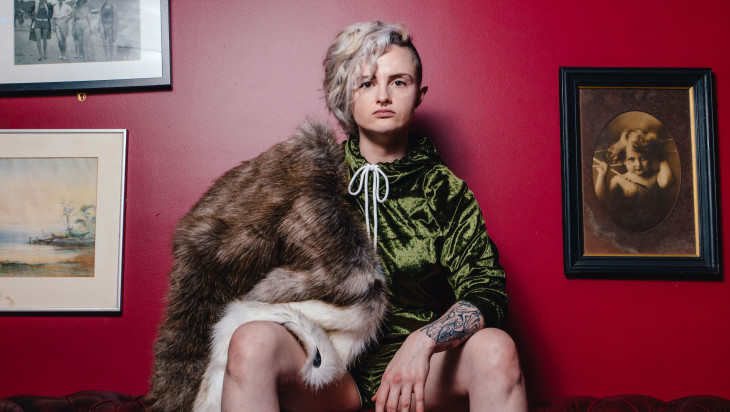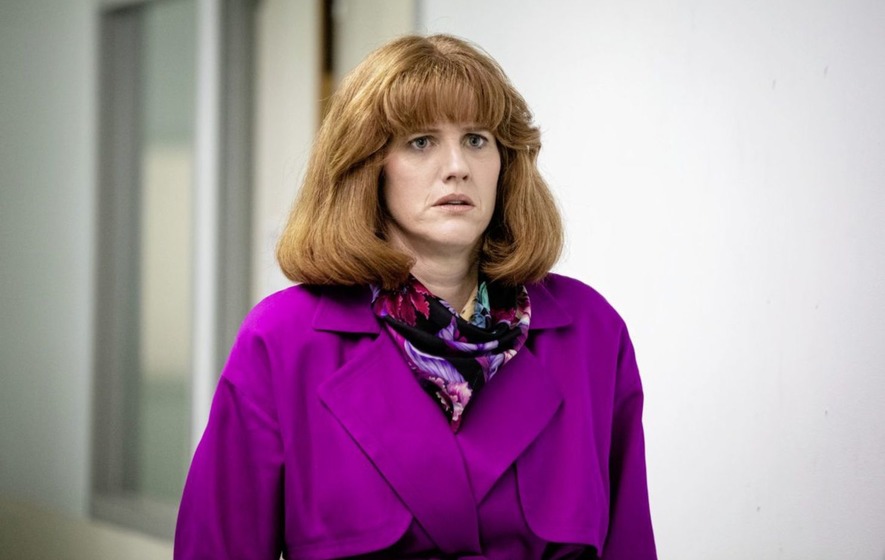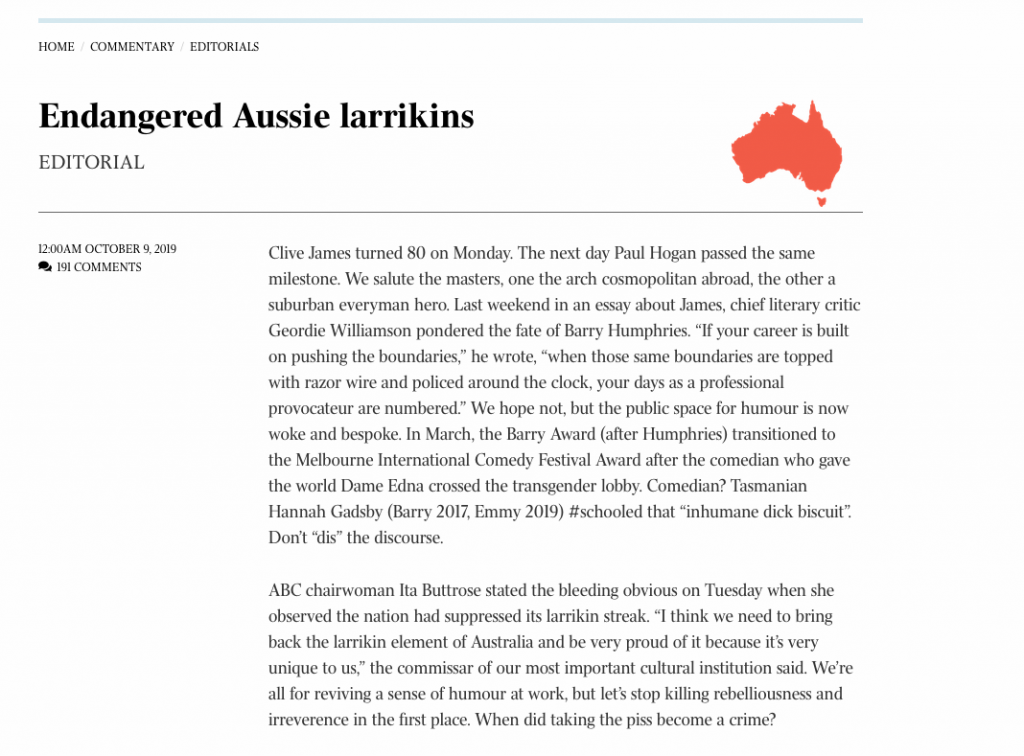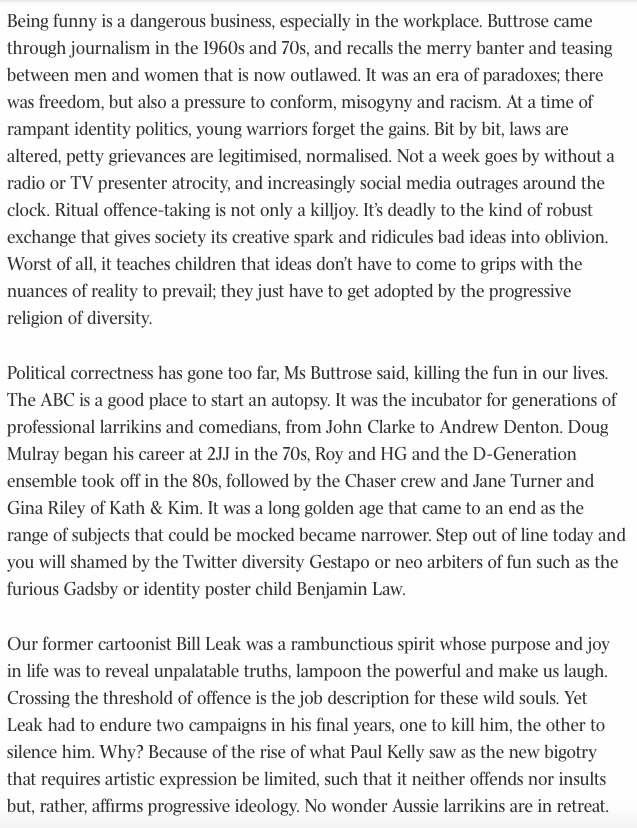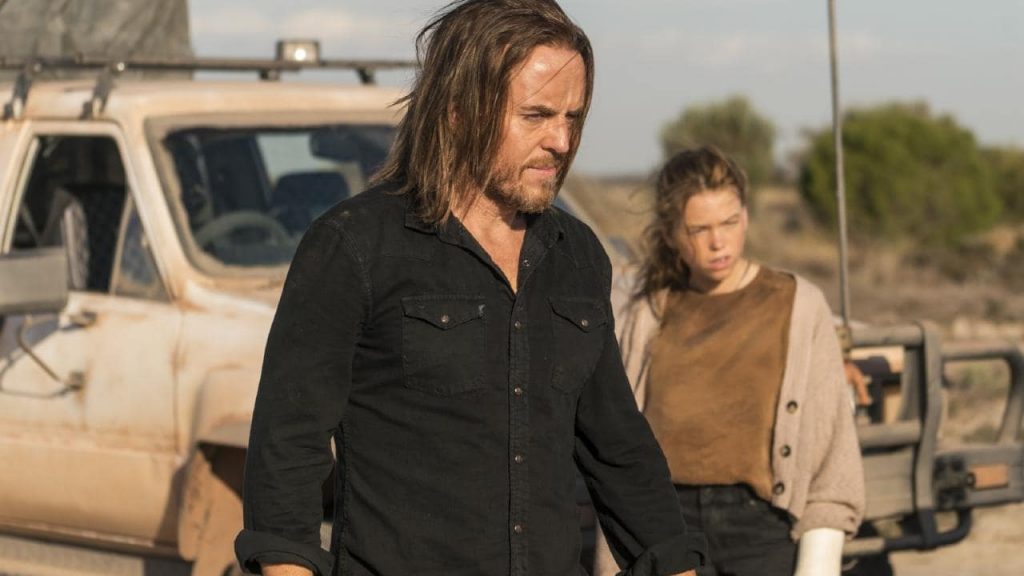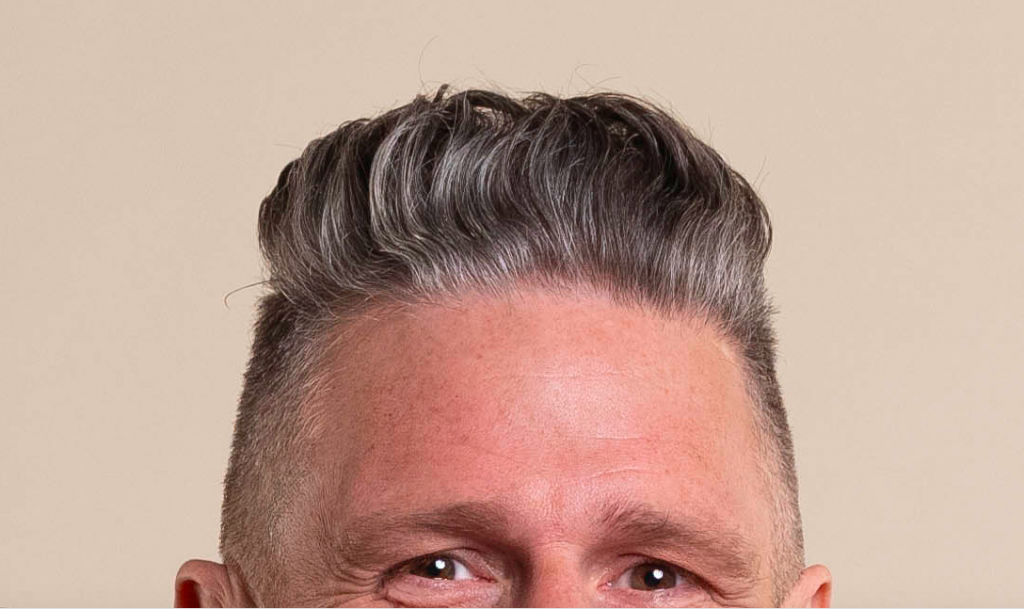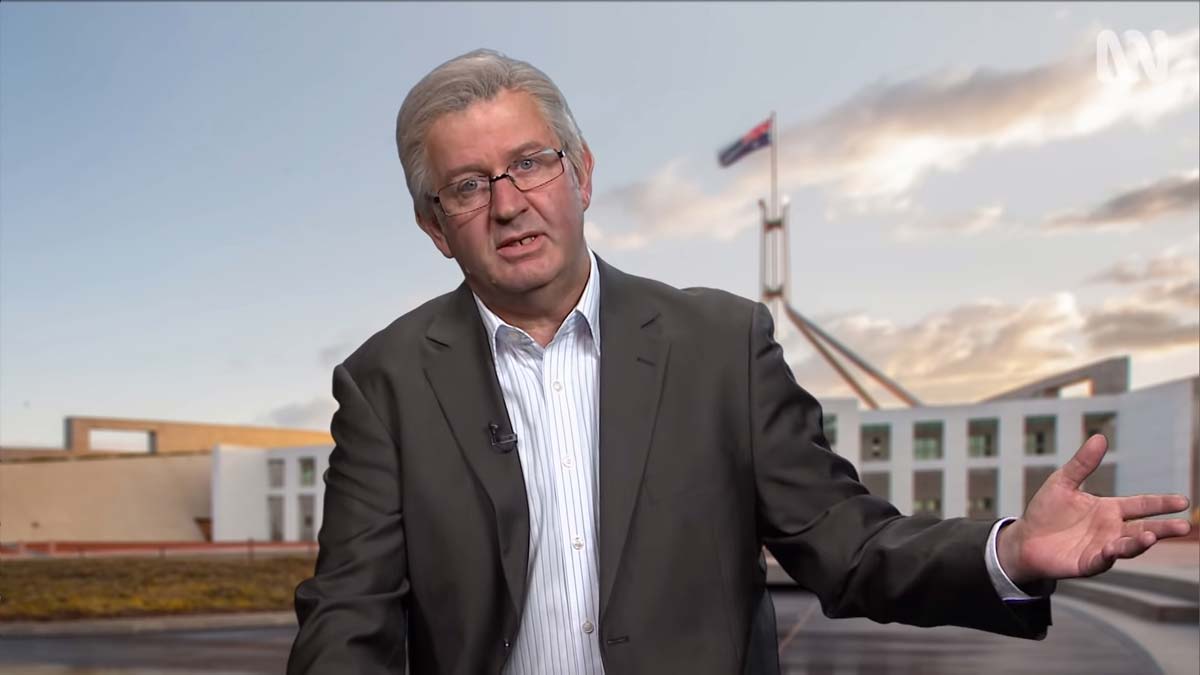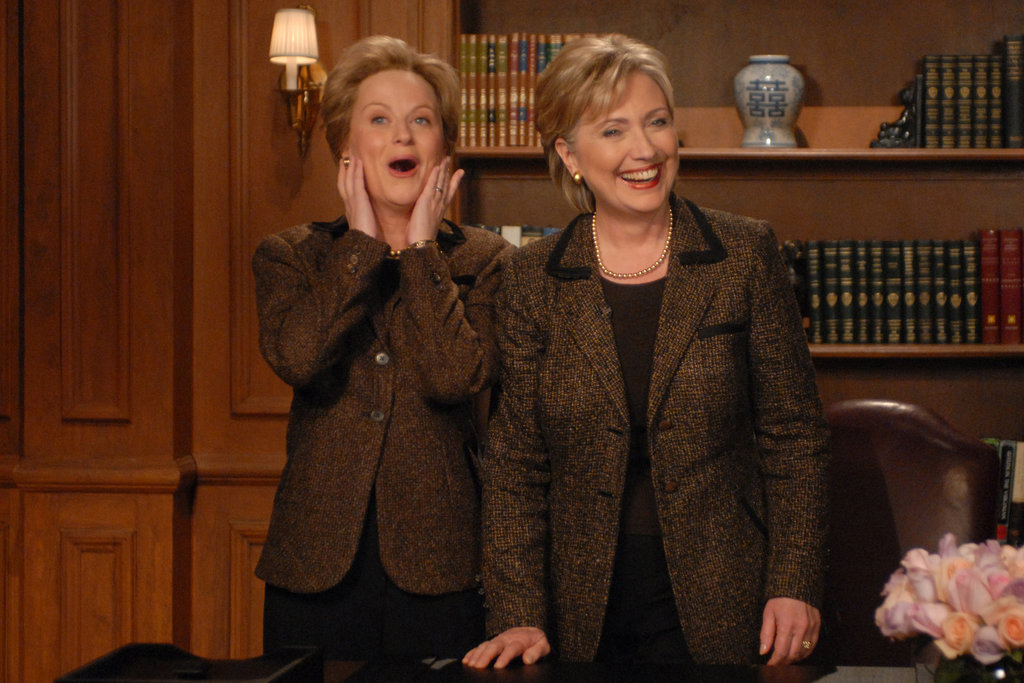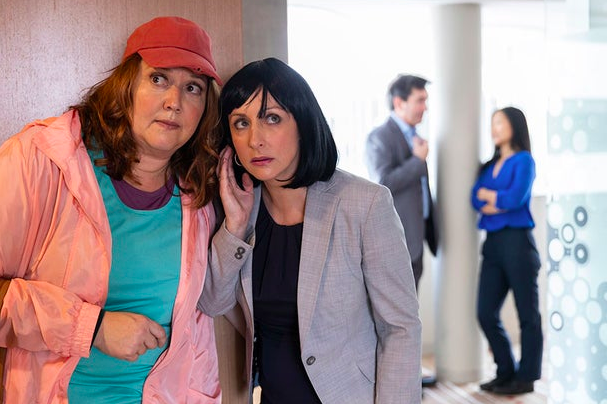Australian Tumbleweeds
A Failing Grade
So this stirred things up a little over the weekend:
Between Hannah Gadsby’s Emmys win, Becky Lucas and Rhys Nicholson landing stand-up spots on the US show Late Night with Conan O’Brien and Demi Lardner’s Best Show nomination at the Edinburgh Festival in August, Australian comedy is having a world-class moment.
Not that you’d know it looking at our local TV screens.
“Because they’re cowards,” says Lardner of the commercial networks’ reluctance in offering opportunities to young comic talent.
Cowards? The people who put Trial by Kyle on the air? Never.
It’d be easy to dismiss this article as the griping of a comedy generation who don’t know how lucky they are – and a lot of people on twitter did just that.
After all, it wasn’t so long ago that Australian comedians had next to no opportunities to establish themselves anywhere, let alone on a global stage. Remember when the biggest venue for Australian stand-up on television was Hey Hey it’s Saturday? Even Bill Hicks couldn’t make that work.
For most of the 90s, the Australian media was fenced off and unless you were already behind the wire – which is to say, you were a white male baby boomer of Ray Martin vintage – you had no chance of getting anywhere (Mark Davis’ book Gangland is a useful guide to this grim time). There were zero opportunities for anyone new to make a mark in the media for a solid decade or more; comparing that time to this, it’s hard not to wonder what the current crop of stand ups are complaining about.
Thing is, if you look back just a little further you actually will find a time when Australian comedy did provide opportunities – good ones – to up and comers. If you were making comedy in the 80s, there was a firm path to success; people on community radio were getting steady work on commercial radio, people doing live comedy were getting work on ABC shows that led to series on commercial television. The result? A golden age of Australian comedy we’re still looking back on fondly today.
So what went wrong? Generally speaking, having a recession in the early 90s didn’t help. It turned out that having wave after wave of up-and-comers eventually left you with a whole lot of established comedians who didn’t want to leave the country, or retire, or just generally make room for the next lot.
Going to university suddenly cost money, so students focused on getting their degrees instead of piss-farting around in student revues being funny. Networks started to lose interest as comedy stopped being “the next big thing”. Pick a reason; we’ve got loads more.
So Lardner is right: Australian television today is letting down the current generation of comedians. Unfortunately, Australian television today is also letting down anyone who likes drama, variety, decent current affairs, and just about anything that isn’t sport or reality television.
The ABC, as we’ve mentioned before, doesn’t have the money to make anything that isn’t an international co-production; the commercial networks are following the ratings and in 2019 they don’t lead to comedy without Andy and / or Hamish.
But just because comedy is stuffed in this country doesn’t mean there aren’t still options – for one, Australian television could provide a showcase for up and coming talent.
That sounds risky – “up and coming” often being code for “not great” – but is actually something that Australian television has done a few times in recent years so it’s clearly not a terrible idea.
What is a terrible idea is the other thing Australian television has done a few times in recent years: put on a showcase for up and coming talent and then dumped it without replacing it with something else.
Usually the recent axing of Tonightly gets brought up as a symbol of the ABC’s abandonment of the youth – the “lingering resentment” over its departure definitely got a mention in this article. But the problem wasn’t that the ABC axed Tonightly: it had been running for close to a year and the ratings were in the toilet. It was that they axed Tonightly and didn’t bother with a replacement.
Likewise, the recent Open Slather – which was obviously the show Lardner’s talking about about as a “hot mess”:
“It had too much money behind it, and Foxtel is just poison for comedy. It was the biggest comedic failure I’ve been involved with,” says Lardner.
– was in theory not a terrible idea: get a bunch of old names from the 80s golden age to bring in the viewers, combine them with up and comers (ie: Lardner) to bring the funny, and you have a winner. Except that we’re talking about Australian television here so of course, it wasn’t.
“When you’re forced to be creative, which is how young people have to be because we have barely any money, things turn out way better because it’s interesting and we’re not the same 10 50-year-old white dudes they’ve been hiring since Full Frontal.”
Who could she possibly have been talking about?
Frayed (or How To Do Dramedy)
One of 2018’s better comedies was the three-part BBC radio series Australian Trilogy, based on Sarah Kendall’s real-life experiences growing up in Newcastle in the 1980s. As a teen, Kendall was an enforced loner, stuck in a traditional but depressed industrial town where anyone different – especially a nerdy redhead girl – was always going to be picked-on and an outsider. As Kendall’s reflected in her stand-up, she always knew she had to leave Newcastle, and it’s this theme of being an outsider, of wanting more and of running away from social pressure and bullies, that underlies her new dramedy series Frayed.
Frayed begins in 1988 in a mansion in a posh part of London where Australian-born Simone (Kendall) is called to a hospital where Nick, her rich British businessman husband, has been rushed. Simone quickly discovers that Nick has died, of a heart attack brought on by an evening spent abusing multiple substances and engaging in some niche and very 1980s sexual activities with a prostitute (Kerry Godliman).
Later, in a meeting with her lawyer (Robert Webb), Simone finds out that Nick’s business activities have been less successful than she’d thought and that he’s left her with nothing. Simone realises that she has little choice but to move back in with her Mum (Kerry Armstrong) in Newcastle, taking her confused, posh English kids Lenny (Frazer Hadfield) and Tess (Maggie Ireland-Jones) with her, where the three of them have to learn to live in a completely new environment – and to confront all the lies Simone has told. A big one being that she’s really called Samantha.
As a first episodes go, this is very good, quickly establishing the main characters, setting up plots involving Samantha’s family and old school friends, which will play out in future episodes, and perfectly balancing the comic and dramatic elements. And speaking of the comedy bits, they’re actually funny in Frayed – a rarity in dramedies, where idiot characters doing something stupid is about as funny as it gets (hello SeaChange).
Partly this is down to really good comedic writing from Kendall and partly it’s down to the excellent Australian and British cast who’ve been assembled. In the British scenes are not only Robert Webb (Peep Show, That Mitchell and Webb Look) but also Paul Putner (Stewart Lee’s Comedy Vehicle), Sharon Horgan (Catastrophe) and Rufus Jones (W1A). And in the Australian scenes are not only Kerry Armstrong (who it’s great to see not as ditzy Heather Jelly) but also Trystan Go (The Family Law), George Houvardas (Packed to the Rafters) and Diane Morgan (aka Philomena Cunk).
It’s pretty rare from us to want to see more from a dramedy, but when a show gets the comic and dramatic elements right – and gives us the best depiction of the Australian/British cultural divide since The Adventures of Barry McKenzie – then, yeah, we’re up for more.
It’s Political Correctness Gone Mad (Vale Utopia)
We don’t usually bother with The Australian, which is one thing we have in common with the entire Australian population, but this did manage to catch our eye:
Others have pointed out the irony of The Australian leaping to defend comedians they sued (successfully) over a joke; The Australian having spent the last decade or two demanding the ABC’s funding be cut to pocket money levels didn’t go unnoticed either. You can read it here, but why give them the clicks?
Who said comedy was dead in this country? Oh right, that was us. How did we miss the campaign to kill Bill Leak?
Obviously this is complete bullshit from top to bottom, but it is moderately interesting to see which “professional larrikins” made the cut. For example, where’s Chris Lilley? You’d have thought he’d have definitely made the grade – but then that’d require the unnamed author to acknowledge that the golden age of shithouse mockery they’re mourning has lingered until… roughly six months ago.
(it’s also a big gap between the D-Generation and “The Chaser Crew” – what happened to comedy in the 90s? Oh right, John Howard)
Presumably the names named were named because they’re all currently not making comedy thanks to the “Twitter diversity Gestapo” – look, satire is dead now that Roy & HG aren’t getting steady work! Unfortunately yet unsurprisingly, they’ve fucked this up too (and not just by claiming John Clarke was “incubated” at the ABC, which must be a shock to both New Zealand and Channel Nine): the bulk of the D-Gen became Working Dog, creators of the strangely unmentioned Frontline – oh right, that was mocking shitty media, touch awkward there – and the just finished for 2019 Utopia.
See, if only The Australian been slightly more on the ball they could have made an argument that held a little more more water, because on one level Utopia is a prime example of what they’re complaining about. No, not the way you can’t show up at work in blackface while calling everyone you’ve been bullying a “poof”; the way Australian comedy no longer “reveal[s] unpalatable truths, lampoon[s] the powerful” and so on. But good news: there’s still lots of jokes about office printers.
Of course, Utopia isn’t really what they’re complaining about. Utopia is what you get when you – that is to say, News Corp and their Federal government allies – wage a relentless war on every level on the national broadcaster: a political “satire” that’s resoundingly toothless and firmly on the fence.
The underlying point of Utopia beyond the generic workplace comedy stuff it’s increasingly focused on is that all politicians are basically the same: obsessed with wasting money on big crazy projects that won’t achieve their stated goals.
This isn’t exactly untrue, but it’s just a generic anti-government message that’s pretty much useless as satire in Australia. It plays well to modern conservatives though – you know, drain the swamp and all that shit.
That’s not to say Utopia isn’t a well-crafted, polished piece of work. Working Dog are the best sitcom team in the country, and Utopia features wall-to-wall snappy dialogue that largely disguises the fact that every episode has the same plot: politicians love crazy expensive schemes that won’t work, the NBA top brass argue against them (and fail), and we get a bunch of wacky office workplace hijinx stuff in between. Inspirational speakers only want to talk about their depressing personal issues!
Still, after four seasons it’s starting to look a little… tired. Where once it was firm ABC policy to give scripted comedy two seasons then show them the door to make room for new series, increasingly the same old shows keep on coming back.
Upper Middle Bogan had three seasons before it wrapped, while Utopia has made it to four; Rosehaven‘s had three and there’s no suggestion it’s finished yet.
That’s not entirely the ABC’s fault: they’re so broke these days everything scripted is a co-production with international producers (even Utopia; Working Dog sold the first two seasons to Netflix and the third to America’s PBS), which means they’ll keep on going until the overseas money runs out (vale Please Like Me… after four seasons).
Throw in a free-to-air television viewership in decline (got to keep those old favourites running) and we definitely wouldn’t rule out a fifth season of Utopia just yet.
We’re not saying Utopia turned into a workplace comedy with a generic political message in an attempt to secure overseas money; those elements were there right from the start. We’re saying that it’s those elements that made Utopia attractive to overseas buyers (and if you don’t think Working Dog were aware of the overseas market, check out how many countries had their own versions of Thank God You’re Here).
In 2019 overseas finance is the only way a sitcom survives on the ABC and Australian issues don’t sell overseas – but that “Ask him to leave” “But it’s my office” joke? Money in the bank.
All of which means the real problem isn’t that the public space for comedy is now “woke and bespoke”; it’s that the space is now international and the overseas guys decide what gets made. If Ita Buttrose really wants to “bring back the larrikin element of Australia”, she needs to give the people making comedy in this country enough money to make comedy for this country.
“When did taking the piss become a crime?” When it turned out the overseas producers who now pay for Australian comedy didn’t know what the fuck “taking the piss” meant.
The Downlow on Upright
All episodes of UPRIGHT will be available to UK viewers from Thursday 28th November, 2019, on Sky Atlantic and streaming service NOW TV.
In Australia you can watch all episodes from Sunday 1st December at 8:30pm on FOXTEL or watch a double episode premier on FOX SHOWCASE.
Written by and starring Tim, UPRIGHT, follows two misfits thrown together by chance in the middle of the Australian desert, who forge the unlikeliest of bonds in their quest to get a precious piano from one side of the country to the other.
Described as a “comedy drama”, which on a good day means a drama with jokes but unfortunately can also mean a comedy that often isn’t that funny, it sounds like it’s basically an outback road trip, which has worked for a lot of Australian films but surprisingly hasn’t been done too often with television (presumably because, you know, money).
So it’s Minchin goes Wolf Creek? Not quite:
When Lucky Flynn (Tim), who hasn’t spoken to his family in years, learns that his mother is dying, he sets off on a 4000 kilometre drive across Australia to see her, packing only his cherished upright piano. His plans soon go awry when he meets rogue teenager Meg (Milly Alcock). Together they forge an unlikely friendship as they embark on a road-trip adventure across the Nullarbor Plain in a race against time.
We’re guessing the “cherished upright piano” is the comedy part of the comedy drama. But to be fair, there are comedy names in the credits:
Led by Tim, there’s a brilliant creative team behind UPRIGHT, including Chris Taylor (The Chaser) with whom Tim is writing the series alongside award-winning writer-actors Kate Mulvany (Lambs of God, Fighting Season, Jasper Jones stage play) and Leon Ford (Offspring, No Activity). The Director is Matthew Saville (Please Like Me). Tim is Executive Producer with Penny Win, Carly Heaton and Helen Bowden. Producers are Lingo Pictures’ Jason Stephens, Chris Taylor and Melissa Kelly (Hounds of Love).
One day we’re going to get around to writing that post about how 95% of Australian comedy is made / produced by the same half dozen mildly amusing people, but today is not that day.
Anyway, Minchin can still be funny and charming when he’s not banging on about kindness and making journalists feel extremely nervous in case he goes off and writes another wildly popular song about how much he wants them to die and it’s not like Australia doesn’t need a comedy that isn’t crap in 2019 so fingers crossed here.
Should I Get a Set of White Wall Tires?
Gruen‘s back! Yes, the show that somehow manages to violate the ABC’s rule against broadcasting advertising twice* is back once again to… actually, why is it back?
Ignore, for the moment, the real reason; it still rates well and it’s not like the ABC has a surplus of those shows handy in 2019. The ABC has always claimed that Gruen in all its forms is worthy of putting to air because it helps audiences to understand how advertising (or sport, or politics, and once you remember that the regular Gruen panel used to also cover that stuff seemingly at random this argument falls in a heap but let’s keep pretending for a moment) affects our daily lives. It’s educational, you guys. It helps people to learn. It’s good for you.
Obviously this is rubbish. Even we Gruen haters don’t care that it’s rubbish; we’ve said for years that advertising is where comedy writers go when they want to go professional, and many of the best Australian comedy sketches of the last forty years have been commercials. Gruen is basically a sketch show where the sketches are written and paid for by commercial interests, which is a great idea if you’re television producer Andrew Denton but it’s probably not something the ABC should be doing – hence the panel “explaining” advertising to make it into something more suitable for the ABC.
The thing is, as this week’s return episode made clear, advertising has left Gruen in the dust. If you’re making a show with a panel featuring experts in advertising in 2019, you’d have about fifty people from Facebook, forty eight from Google, another couple dozen from YouTube and Instagram and so on – and then, maybe, you might have one single solitary person from an Australian advertising agency. And you’d still be being extremely generous to the local guys.
Look, most of the first episode – when they weren’t showing random clips and overseas commercials for shits and giggles – had them discussing various free collectables that supermarkets give away. Does anyone drawing breath need this stuff explained to them by a crack panel of industry experts?
One of the panelists literally said “we know brand exposure leads to brand loyalty” after spending 20 minutes exposing ABC viewers to the brands “Coles” and “Woolworths”, so remind us: why did an issue that could have been covered with the sentence “kids like trinkets and supermarkets use that to get the parents into the store” have to take 20 minutes? Oh wait, we put the answer before the question.
And once you realise Gruen is basically an ad for the Australian advertising industry, the episode’s final segment – “Google is scary and sinister, they’re like a drug dealer, we need to be really concerned about them” – makes sense. Google is the competition. Google isn’t bad to these guys because of what it does, because they want to do the exact same thing – Google is bad because it’s better at their jobs than they are.
Gruen is so shameless that they didn’t even notice – or care – that Wil Anderson’s final comedy catchphrase for Google – “Leave me alone mate, I’ve had enough” could just as easily apply to advertising as a whole. “Yeah, back off Google, leave annoying the shit out of Australians with the relentless commercialisation of every possible human interaction to the local boys”.
The real problem with this, or what would be the real problem if anyone took the ABC’s stated reason for airing Gruen (experts educating the plebs, remember) seriously, is that it underlines just how piss-useless the Gruen experts are in 2019. Even when they’re talking about Google, they’re talking about television commercials for Google; who the hell sees television commercials in 2019? They were honest-to-God comparing Google to the Yellow Pages, which is fine – if you still remember the Yellow Pages, in which case advertisers don’t give a shit about you.
Gruen isn’t educational, or informative, or insightful; it’s out of touch. Like an increasing amount of ABC programming, it’s a nostalgia show, based in memories of the good old days when a decent television campaign could make advertising gurus into stars and possibly sell some shit on the side. It’s not on air to give viewers the tools needed to cope with the invasive world of modern advertising; it’s a bunch of people waffling on about the good old days when they – and television itself – could be important and relevant to people’s lives.
And if you’re going to do that, you really do need to be a whole lot funnier.
*first, because it shows commercials; second, because the whole thing is a commercial for the advertising industry. Why else do they tell us who the panelists work for? They’re not politicians where we need to know their gang affiliation; a simple “advertising executive” or “copywriter” or “marketing expert” would do just fine.
We Got the Beach
Remember Beached Az? That one joke online animated series from back when you could build an entire career around a single meme? It’s back!
As the tenth anniversary of Beached Az loomed up, they decided to do another series. But this world is very different, and they could expect no more than a 24 hour giggle which would vanish into the storm of content. Not only that, Green acknowledges that the world does not really need another 10 episodes of an extended joke about accents.
Well, that’s something at least.
This has been a while coming; the date originally announced for the gala 10th anniversary return was March this year. Presumably the original team of Anthony MacFarlane, Jarod Green and Nick Boshier had other things on the go – they’ve all done well for themselves off the back of Beached Az, though their involvement in comedy projects has waned over the years. But wait no longer!
Well, a little longer: October 1 is now the new launch date.
Showing off the media skills that made Beached Az such a hit the first time around – come on, you didn’t think their comedy skills had anything to do with it – this relaunch isn’t just a simple reboot. Okay, yes it is, but with extra bits bolted on:
Gluing all the bits together took 18 months, because it now has three different dimensions. The Tenn(ish) anniversary series has the usual daft jokes, improved by the use of an international animator but still rooted in the same naive style. As Green says, ‘The animation is still quick to do but we spend a lot of time getting the script and the story right. We are now miked properly and it is a really nice pipeline in that respect.’
But there’s more!
Beside that is a short documentary series, in which the seagull interviews serious players in the climate change movement.
Don’t order yet!
The project also has a mobile game called Bleached Az, developed in partnership with Chaos Theory Games. It will be available for free, supported by ad revenue, 20% of which is spent on funding Carbon Neutral to plant trees. Green has a sweet statistical connection – he claims that 16 grams of carbon will be removed from the atmosphere every time someone plays.
Okay, that’s it.
Whether they’ll be able to recapture the old magic is the real question, and it’s a big one. Nostalgia is a hell of a drug, but the online environment is largely built around moving forward – you don’t see Star Wars Kid or All Your Base Are Belong To Us making comebacks.
A decade ago the Beached Az guys managed to get the ABC on board in a solid bit of cross-promotion and unit shifting, but while the ABC is still struggling today to come up with content (or Content) that cuts through online, they’re nowhere to be seen for this revival. But as Green says:
‘We understand the world of Facebook and Youtube. We are using content to build community and repurpose visual content… all good brands have opinions and a voice and a social purpose.’
It’ll be interesting to see if any of that brand management jargon applies to creating good comedy.
Mr Mojo Rising
If you spend any time at all watching the ABC’s free-to-air channel, chances are you’ve seen more than one ad for the upcoming How Australia Got Its Mojo with Russel Howcroft. Bonus points if you’ve been able to avoid kicking in your television screen.
It’s not for us to wonder aloud in a shouty voice why the fuck the ABC is running a one hour salute to the majesty of 70s-era Australian advertising, which we can only assume was an industry even more jam-packed with horrible, horrible people than it is today. But while we were clawing at our faces at the nightmare of a national broadcaster devoting its increasingly limited resources to what will almost certainly be little more than an excuse to show a bunch of old commercials so the ABC’s devoted audience of 70 year olds can go “why don’t they put women in bikinis on the telly any more? It’s political correctness gone mad”, we did think of something this documentary could do to entertain us: talk about Paul Hogan.
Something that often gets overlooked these days when Crocodile Dundee gets mentioned – okay, pretty much everything gets overlooked because Crocodile Dundee isn’t on the tip of anyone tongue in 2019 – is the way that Paul Hogan’s international success wasn’t a matter of the world embracing an Aussie larrikin, but the result of a carefully put together plan to create an internationally famous character – paid for by advertisers around the world.
Hogan was a successful television comedian in Australia in the 70s, but his show didn’t exactly travel the globe. What did were his commercials: he advertised Fosters in the UK, then was the face of an extremely successful tourism campaign in the US. So when he made Crocodile Dundee, international audiences already knew who he was and liked what they saw; so long as the movie delivered the same tried and tested brand of laconic Aussie comedy – and it did – there was a very strong chance it’d pull a crowd.
Fun fact: the tourism ads that made Hogan a star in the US actually were made by Mojo. So chances are they’ll even get a mention in this documentary. But here’s our prediction: if and when they do get mentioned, it’ll be to suggest the ads were what made Hoges a global star, not that Hoges – who, let’s not forget, had already used commercials both in Australia and the UK to extend what we call today “his brand” – was a canny individual who used and exploited the commercials as part of his own career plan.
Because these days the ABC’s business isn’t to actually examine or educate, but celebrate. And when the thing you’re celebrating is the advertising industry, you’ve clearly lost the fucking plot.
Vale Mad As Hell series 10
Tonight, we say farewell to the 10th series of Mad As Hell. What have we learnt?
One of the things that’s noticeable about Mad As Hell is the way it never parodies any actual politicians and public figures. And by this we mean the show don’t include impersonations of real people. Instead, we get a character, typically a staffer or advisor to the politician, through which the politician is parodied.
Long-time Mad As… favourite Darius Horsham, “spokesborg” for Mathias Cormann, with his Arnold Schwarzenegger-style Western European voice, is one example. Dolly Norman, assistant to Jackie Lambie and more recently Bob Katter, renowned for her homespun, “ordinary Australian” views and mauled similes, is another.
One such character we particularly enjoyed this series was Leo Hatred, Scott Morrison’s Life Coach, a man who spits out sound bites and clichés whenever he’s interviewed, always ending with the phrase “how good is [THING/CONCEPT]”. It’s been impossible to watch an interview with the actual Morrison since and not think of Hatred.
But why create a bunch of staffer and advisor characters when the cast of the show could just impersonate the actual politicians? World-renowned satire programs like Saturday Night Live are as talked about for their cold openers featuring Alec Baldwin as Donald Trump as they are for anything else*.
We have a theory: the history of satirical comedy on TV is littered with parodies of politicians that didn’t quite achieve their intended effect. Instead of the public reviling the politician as a result of these parodies, the public starts to like the politician more because they fall in love with the parody. You even get to the point with some parodies where a politician realises how good they’ll look if they embrace the parody, so they come on the show and do a sketch next to the parody.
Admittedly, there’s been very little of that exact sort of thing in this country in recent years, although Julie Bishop’s appearance in Yes Are Canberra’s starring competition and even Pauline Hanson’s appearances on Dancing with the Stars and Celebrity Apprentice are in a very similar vein. In that they both managed to transform the public’s view of these politicians and, crucially, to make them seem likable.
In fact, if you want to blame anyone for the return of Pauline Hanson to Parliament, don’t blame the relatively small number of vile racists who genuinely agree with her, blame commercial television for normalising her, for making her seem less bad, for making just enough people forget who she really is so they’d vote for her. Is the average Mad As Hell viewer going to vote for One Nation after seeing a sketch featuring Casper Jonquil? Nope.
Which is one of the many reasons Mad As Hell is the best satire program in the country, possibly the world, right now. In everything that they do, they take a thoughtful approach. In this case, the Life of Brian approach: the best target for satire is the ideas not the individuals. Want to parody faith? Don’t parody Jesus, parody someone who is like Jesus. Want to parody Australian politics? Don’t parody individual politicians, parody people who believe the same things as they do. They’re generally nuttier – and funnier – anyway.
* Discounting the recent scandal regarding their new hire.
Watching the Detectives
This year’s Pilot Week on 10 has been something of a disappointment for those who really hoped the future of television might still have room for people who actually write television. And that disappointment extends to Part Time Private Eyes, the only scripted show getting a go on Pilot Week this year; technically a comedy, it would have been a lot better if they’d extended the run time and gone for an actual mystery to keep audiences engaged.
It’s the kind of idea you’d expect to see from the UK and you just know writers-creators-stars Heidi Arena and Nicola Parry have one eye on those overseas format sales because that’s just how television works these days. Oh right, the idea: Val (Arena) is a chatty, overly friendly mum, Alex (Parry) is a somewhat classier / more uptight mum, and with nothing much on between 9am and 3pm (and with bills to pay in Alex’s case), they decide to help out a fellow mum (Nadine Garner), who’s wondering if her husband is cheating on her.
That’s a fair bit of set up for a half hour sitcom and as previously mentioned here a thousand times over, Australian sitcoms are not exactly known for their fast pace. So the “investigation” basically involves following the husband to a dental clinic, deciding he’s obviously cheating because he adjusts his fly when he comes out, going back to his house and breaking in for some reason, realising that he’s not cheating – he’s just going through a mid-life crisis and getting his teeth fixed – then having to hide in a closet and farting a lot.
The farting is the funny part.
Arena and Parry are a fun double act and it’s totally reasonable to hope this goes to series simply because they have a lot of promise, but as a half hour show this either should have been a lot funnier or a lot faster. It needed at least one more decent reversal to feel satisfying as a mystery (no, having the wife go “I wanted him to be cheating so I could dump him” doesn’t cut it), and if it’s going to be a straight-up comedy then the two main situations (at the dental clinic and then at his house) needed to be funnier. Donut farts will only take you so far.
(Do donuts really make you fart? Inquiring minds want to know)
The thing is, if Pilot Week really is about finding pilots that are worth taking to series then there’s probably enough promise shown here to give Part Time Private Eyes the green light. It’s a lot easier to come up with a quality mystery than it is a decent sitcom so our totally unsolicited and unwanted advice would be to make it an hour-long show, come up with some decent plot twists each episode, and rely on the banter and chemistry between Arena and Parry to keep the tone light and provide the occasional chuckle as they get in over their heads.
The trouble with making this work if it stays as a sitcom is that they’ll have to set up a whole new scenario each week – new mystery, new characters, new locations – and doing that is going to take up valuable time. Sitcoms that involve new characters each week almost always have the new characters coming to the regulars; they’re set in bars, hotels, coffee shops, whatever. Adding one new element to a regular situation creates comedy – dropping your characters into a new world each week requires a lot more skill if you’re going to avoid having a third of the show turning into exposition.
Put another way, you need to do more to get laughs than just slap a comedy wig on your character.
Yah Chasin’, mate
Remember when The Chaser were funny? Yeah, we’re struggling too. At least now there’s social media to tell them when they’ve fucked up, because clearly they can’t tell themselves.
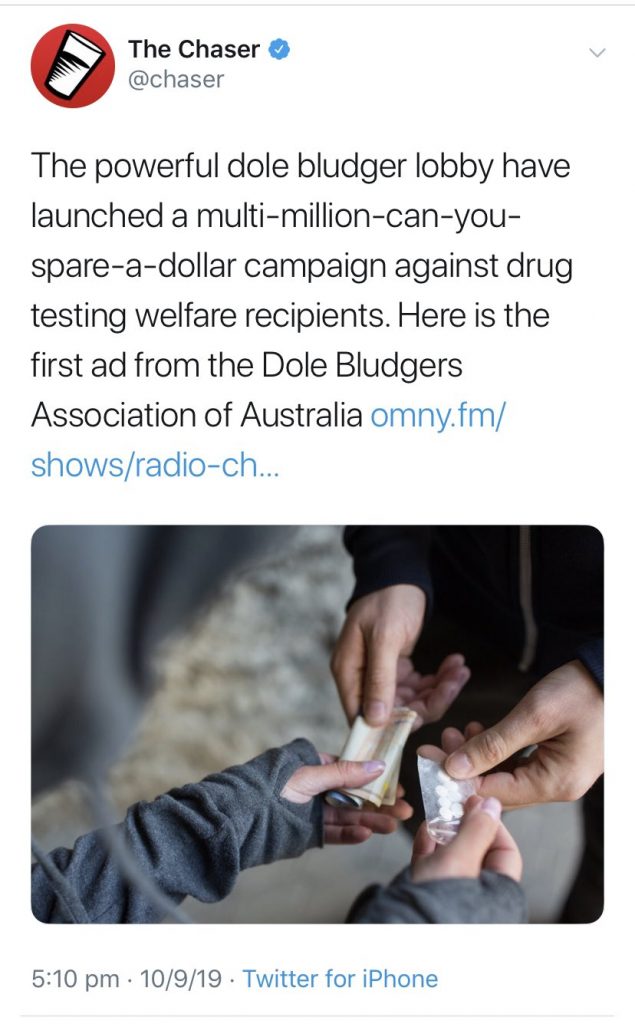
It’s the first ad from the Dole Bludgers Association of Australia, and we’re guessing it’s going to be the last: this was taken down sometime last evening after, well, pretty much everyone who heard it got on twitter to give it and The Chaser a good kicking.
In other words, we're sorry. https://t.co/VQZfn4OZx9
— The Chaser (@chaser) September 10, 2019
And a good kicking it deserved. Not necessarily because it was “punching down”, but because it was shit in concept and kak-handed in execution. Basically it was 40-odd seconds of a junkie voice whining that if people stopped taking drugs they’d be boring arseholes like Scott Morrison. Oh ho ho ho.
Like, there’s the faint outlines of a joke here. “Drugs are good because they stop you being like Scott Morrison” is not the most absolutely stupidest view you could express in a comedy bit. “What if the last group you’d expect made a political commercial?” is a reasonable starting point for comedy. But the bit was just rubbish – it wasn’t even a decent excuse to do a comedy junkie voice, and if you can’t make junkies funny you need to get out of comedy now.
Of course, The Chaser are absolutely the last people who should be making any jokes at all about junkies. It’s not that they all come from Sydney private schools* because quite possibly some of the people they have writing for them don’t; it’s because the attitude spread across all of their comedy for a number of years now has been 100% entitled Sydney fuckwit and it hasn’t done their material any favours at all.
“Every weekday lunchtime join original team members Charles Firth and Dom Knight for a daily radio programme with the characteristically unpredictable Chaser shenanigans”. But at this stage they’re not “characteristically unpredictable”; they’re bland, vaguely right-wing in their underlying assumptions about society, and way less funny than they should be considering all the decades of well-paid practice they’ve had.
This wasn’t a case where a sketch “went too far” and offended a bunch of knee-jerk lefties who hate laughter; this was a shit sketch that didn’t even know what it was trying to say, let alone where the joke it wanted to make was. The Chaser shouldn’t apologise because they accidentally supported the governments views; they should apologise because they wrote, performed, and put to air a sketch so muddled and amateurish that even regional primary school community radio would have said “yeah, maybe not”.
That said, if you can’t tell the difference between mocking a right-wing government’s attitudes and endorsing them until after you’ve put a frankly shithouse sketch out into the world, then maybe it’s time to give up comedy entirely and start submitting your sketches straight to Quadrant.
*okay, Craig Reucassel went to a public school… in Bowral, which as Wikipedia points out, is “noted for its boutiques, antique stores, gourmet restaurants and cafés”

